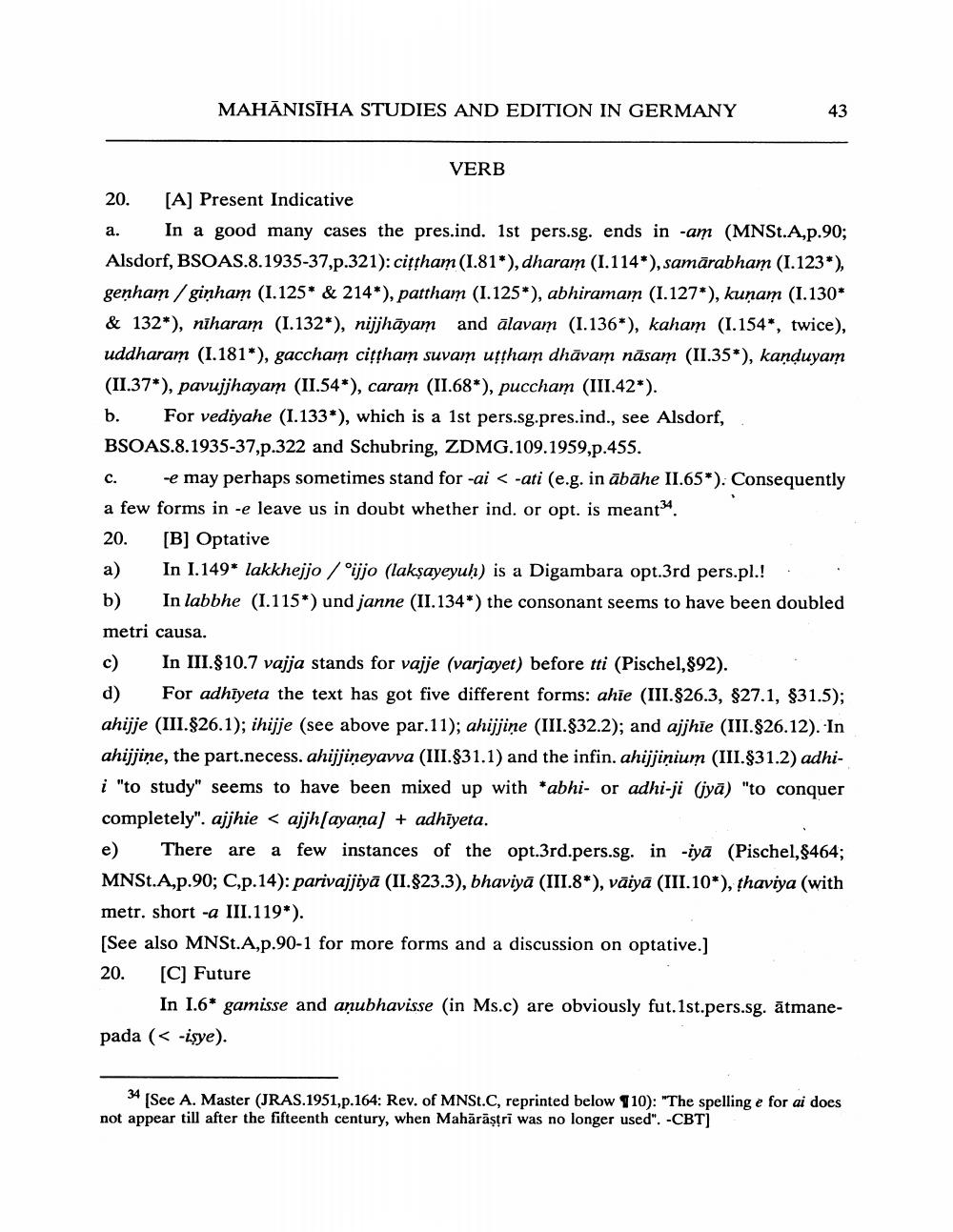________________
a)
b)
MAHĀNISİHA STUDIES AND EDITION IN GERMANY
20.
[A] Present Indicative
a. In a good many cases the pres.ind. 1st pers.sg. ends in -am (MNSt.A,p.90; Alsdorf, BSOAS.8.1935-37,p.321): cittham (1.81), dharam (1.114*), samārabham (1.123*), genham/ginham (1.125 & 214*), pattham (1.125*), abhiramam (1.127°), kunam (1.130* & 132*), niharam (1.132*), nijjhāyam and alavam (1.136*), kaham (1.154, twice), uddharam (1.181*), gaccham citṭham suvam uṭṭham dhavam näsam (II.35*), kanduyam (II.37*), pavujjhayam (II.54*), caram (II.68*), puccham (III.42*).
b.
For vediyahe (1.133*), which is a 1st pers.sg.pres.ind., see Alsdorf, BSOAS.8.1935-37,p.322 and Schubring, ZDMG.109.1959,p.455.
c)
VERB
C. -e may perhaps sometimes stand for -ai < -ati (e.g. in abähe II.65*). Consequently
a few forms in -e leave us in doubt whether ind. or opt. is meant34.
20.
[B] Optative
In I.149* lakkhejjo/ijjo (laksayeyuḥ) is a Digambara opt.3rd pers.pl.!
In labbhe (I.115*) und janne (II.134*) the consonant seems to have been doubled metri causa.
43
e)
In III.$10.7 vajja stands for vajje (varjayet) before tti (Pischel,$92).
d) For adhiyeta the text has got five different forms: ahie (III.§26.3, §27.1, §31.5); ahijje (III.§26.1); ihijje (see above par.11); ahijjine (III.§32.2); and ajjhie (III.§26.12). In ahijjine, the part.necess. ahijjineyavva (III.§31.1) and the infin. ahijjinium (III.§31.2) adhii "to study" seems to have been mixed up with *abhi- or adhi-ji (jya) "to conquer completely". ajjhie < ajjh(ayana] + adhiyeta.
There are a few instances of the opt.3rd.pers.sg. in iya (Pischel,§464; MNSt.A,p.90; C,p.14): parivajjiya (II.§23.3), bhaviya (III.8*), väiyā (III.10*), thaviya (with metr. short -a III.119*).
[See also MNSt.A,p.90-1 for more forms and a discussion on optative.]
20.
[C] Future
In 1.6* gamisse and anubhavisse (in Ms.c) are obviously fut. 1st.pers.sg. ātmanepada (< -işye).
34
[See A. Master (JRAS.1951, p.164: Rev. of MNSt.C, reprinted below 110): "The spelling e for ai does not appear till after the fifteenth century, when Mahārāştri was no longer used". -CBT]




